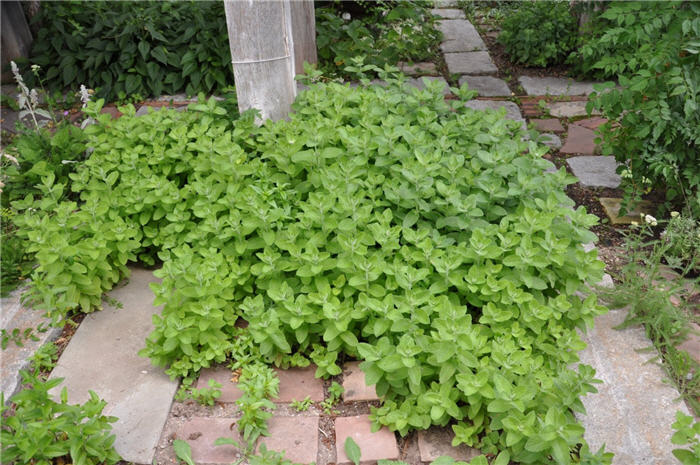| Botanical Name: Mentha spicata | |
| Common Name: Spearmint |

-
Anatomy
-
Culture
-
Design
Plant Type
Ground cover, Perennial, Herb
Height Range
1-3'
Flower Color
Lavender, Pink
Flower Season
Summer
Leaf Color
Green
Bark Color
n/a
Fruit Color
n/a
Fruit Season
n/a
Sun
Full, Half
Water
Medium, Extra in Summer
Growth Rate
Fast
Soil Type
Sandy, Clay, Loam
Soil Condition
Average, Rich, Poor, Well-drained, Moist
Soil pH
Neutral, Basic
Adverse Factors
Attracts Bees, Invasive
Design Styles
English Cottage, Mediterranean, Ranch, Spanish, Native Garden
Accenting Features
Fragrance
Seasonal Interest
Summer
Location Uses
Perennial Border
Special Uses
n/a
Attracts Wildlife
Butterflies
Information by: Stephanie Duer
Photographer:
Photographer:
-
Description
-
Notes
Spearmint is a perennial with fragrant, lance-shaped leaves. Flowers appear on dense, cylindrical spikes, with tubular, white, pink or lilac blooms. Like other mints, spearmint spreads by stolons and rhizomes, and so should be planted were its spreading habit doesn't matter or in a place where it can be contained. Spearmint leaves are smaller than peppermint leaves, and have a variety of culinary uses, including jellies, candy, and beverages. Very aromatic foliage. Grows 1 to 2 feet tall and spreads until it is stopped.
Mints grow best in rich, moist soils in full sun to part shade, though not overly wet soils. Adapts to a wide range of soils except dry ones. May be sheared after bloom to remove flower spikes and stimulate new vegetative growth. Soil barriers may be used to restrain rhizomatous spread if plants are grown in borders or other areas where spread is unwanted, though, honestly, if spreading is a concern, plant it elsewhere or in a container.